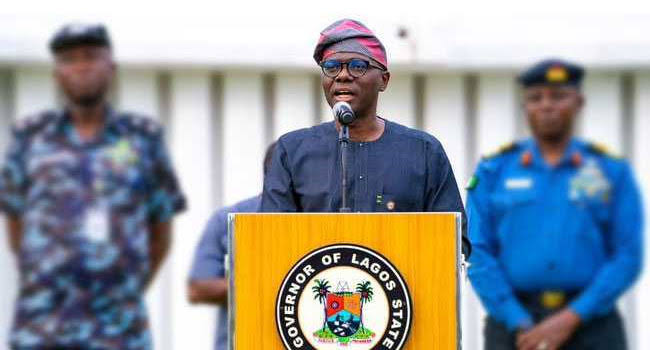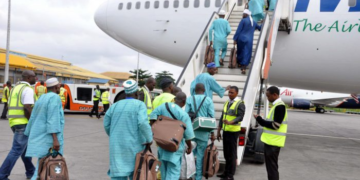The Lagos State Government plans to spend N550.689 billion on developing and maintaining infrastructure across the state in 2024.
The Commissioner for Economic Planning and Budget, Mr. Ope George, revealed this during the state’s “2024 Budget Analysis” held at Ikeja on Wednesday.
George explained that the N550.689 billion allocated for infrastructure, representing 24.28% of the entire budget, is part of the N1.315 trillion capital budget for the year.
He pointed out some of the infrastructure projects targeted with the budget, including the continuation of ongoing transportation projects. These projects include expanding the rail network, constructing roads, and completing the Blue/Red Line and other metro projects within the state.
According to George, the budget will also address developing affordable housing schemes and urban renewal projects to address the housing deficit in the state. A total of N55.924 billion, representing 2.5% of the entire budget, will be injected into these initiatives.
“Some of the social housing projects include the completion of 444 units of building projects at Sangotedo Phase II, completion of 420 units of building projects at Ajara, Badagry Phase II, and construction of 136 units of building projects at Ibeshe II, among others,” he stated.
The budget will also focus on “Special Projects,” including continued progress on major infrastructure projects like the Lekki-Epe International Airport, the Omu Creek, and the Blue and Red lines. George emphasized that most of these projects will be prioritized.
The commissioner further elaborated that the 2024 budget aims to complete front-loaded and ongoing infrastructure projects like the Massey Bridge, Omu Creek, Opebi-Mende Link Bridge, stadia, SCRPS, Lekki-Epe, and the Lagos Badagry Express, among others. Additionally, the budget will ensure the commencement of the eagerly awaited 4th Mainland Bridge, connecting Ikorodu to the Island.
George reiterated the state’s commitment to supporting agriculture through increased funding for projects and programs, comprehensive training programs, and incentives tailored for farmers. He also emphasized that ongoing aid for micro, small, and medium enterprises (MSMEs) remains a priority to stimulate economic growth and foster job creation.
“The state’s five-year Agric roadmap stands as a testament to this commitment, aiming to bolster support for farmers and enhance our overall food systems,” George stated.
“This initiative prompted the state to allocate a total sum of N44.33 billion towards Central Food Security, fostering projects such as the Cattle Feedlot Project, Fish Processing Hub programs, and Wholesale Produce Hub & Market. These endeavors aim to elevate food quality, reduce prices, and optimize the agricultural sector in the long run.”
George stressed the importance of boosting human capital development through education and healthcare, as a healthy, skilled, and safe population could best convert the state’s opportunities into value. He announced that the state has allocated 13.35% of the total budget to personnel costs in 2024, an increase of 33% compared to 2023.
The N180.693 billion allocated to the education sector will allow continued investment in educational infrastructure, digital skills initiatives, and vocational education, thus enhancing learning opportunities for every child in the state.
George explained that the total budget size of N2.267 trillion will be funded from a total revenue estimate of N1.880 trillion. This revenue estimate comprises Internally Generated Revenue (IGR) of N1.189 trillion, Capital Receipts of N94.605 billion, and Federal Transfer of N596.629 billion.
He revealed that LIRS is expected to contribute 63% (N750 billion) of the projected IGR, while about 23% (N283.567 billion) is expected to be generated by other MDAs of government.
“We shall achieve this by deepening revenue and increasing the tax net through the deployment of technology, economic intelligence, data gathering and analysis, amongst other initiatives. There were huge revenue generating opportunities in the informal sector, including real estates, transportation, and trade,” he stated.
The commissioner acknowledged a projected deficit of N387.125 billion, which will be funded by a combination of internal and external loans and bond issuance.
NAN











